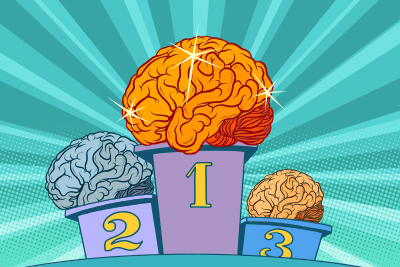Four Points to State Why Art Is Important to Children Growth
ten Reasons Why Kids Demand Fine art & Music
Fine art and music are critical for our youth.
Art and music are critical for our youth. Whether they are exposed to art and music in school or through individual or community classes and lessons, the benefits are incredible. Art and music exposure does more than provide a artistic outlet for kids; they provide mental, emotional, and educational benefits -- and more.
Beneath are ten incredible reasons our kids need arts and music in their lives:

ane. Music Boosts Immature Brains
Immersing children in music can help boost their brain power. Music stimulates the parts of the brain associated with academic achievement, such every bit reading and math, and emotional development. Instead of viewing music as an extracurricular activity, consider it an overall office of your child's pedagogy.

2. Art Improves Academic Achievement
Students involved in the arts have tremendous academic benefits compared to students without exposure to the arts. Fine art inspires kids to excel in and out of the classroom. It helps students stay in school, increases motivation, improves attitudes and attendance, and improves academic functioning.
According to Americans for the Arts, a educatee involved in the arts is:
-
4x more likely to be recognized for academic achievement.
-
4x more likely to participate in a math or science off-white.
-
3x more likely to win an award for school omnipresence.
-
3x more probable to be elected to class office.
Lower income or socioeconomic students experience fifty-fifty greater benefits from the arts. Low income students highly engaged in the arts are more than than twice as likely to graduate compared to their peers with no arts education, and have a 5x lower dropout rate.

3. Music Can Improve Memory
Want your kids to remember their homework assignments, where they put their shoes, or to brush their teeth before bed? Music might assist. Research has shown that participation in music at an early on age can aid ameliorate memory. Exposing children to music in early development helps them learn give-and-take sounds and meanings, and dancing helps build motor skills. Even adults can experience retentivity benefits from but listening to music.

4. Music and Fine art Enhance Creativity
This may sound like an obvious benefit, but the furnishings of enhanced creativity will extend to many aspects of your child's life. Children develop innovation skills when they're encouraged to limited themselves and take risks in creating art and playing music. Those skills can open doors afterward in life; 72% of employers say that creativity is the #1 skill they look for when hiring.

5. Music Improves Social Skills
It'due south not always team sports that teach important social skills; playing an musical instrument tin can assistance, too. Music groups and ensembles can help kids develop important life skills such as teamwork, developing leadership skills, discipline, and how to relate to others.

six. Fine art and Music Improves Language and Reading Skills
Children'south brains develop faster with music, especially in areas associated with language acquisition and reading skills, according to a 2016 study at the University of Southern California'south Brain and Creativity Plant.
For young children, making arts provides opportunities for linguistic communication development. Toddlers learn words for colors and shapes as they create art. If you want to encourage language learning, communication, and reading in your kids, art and music are essential.

7. Art and Music Enhance Critical Thinking Skills
The creativity involved in art education strengthens critical thinking skills for kids. Visually learning through drawing, sculpting, and painting develops visual-spatial skills. This teaches kids how to interpret and use visual data.
Equally for music, a study of 3-four year olds learning to play piano scored significantly higher on spatial-temporal reasoning tests compared to those with no music instruction. Spatial-temporal reasoning is a precursor to logical thinking, abstruse thinking, and problem solving needed for the brain to function in mathematics, engineering, and physics.

viii. Art and Music Build Confidence
As kids develop skills in art and music, and amend those skills through repetition and practice, they build confidence in themselves. Studies have shown that when children participate in arts activities with peers and provide criticism and praise to ane another, the feedback they give to each other builds cocky respect.

9. Art and Music Creates Cultural and Personal Connections
Immersion in art and music can foster a sense of cultural awareness in kids. As students interpret visual imagery from artists and learn nearly fine art history, it helps them sympathise the concept of cultural variety. Seeing a different culture explored through a visual medium such as sculptures or paintings helps kids process information differently than reading near information technology in a text book.
Learning near musical history and exploring different types of music tin help kids connect with dissimilar cultures. Art and music help people experience more continued to i another, equally well.

10. Art and Music Instills Discipline
Dedicating themselves to art and music teaches kids important concepts of subject. While some kids may show a natural talent in one area or another, the truth is that ongoing commitment and practise is required to ameliorate. By committing to stick with lessons and practicing exterior of classrooms and lessons, kids learn discipline skills that will benefit them in many aspects of life.
Immersing children in the arts and music, at dwelling house, through lessons, at schoolhouse and in the community, provides undeniable benefits that will help them throughout their lives.
Source: https://www.artandmusiccenter.com/blog/2019/4/23/10-reasons-why-kids-need-art-and-music
0 Response to "Four Points to State Why Art Is Important to Children Growth"
Post a Comment